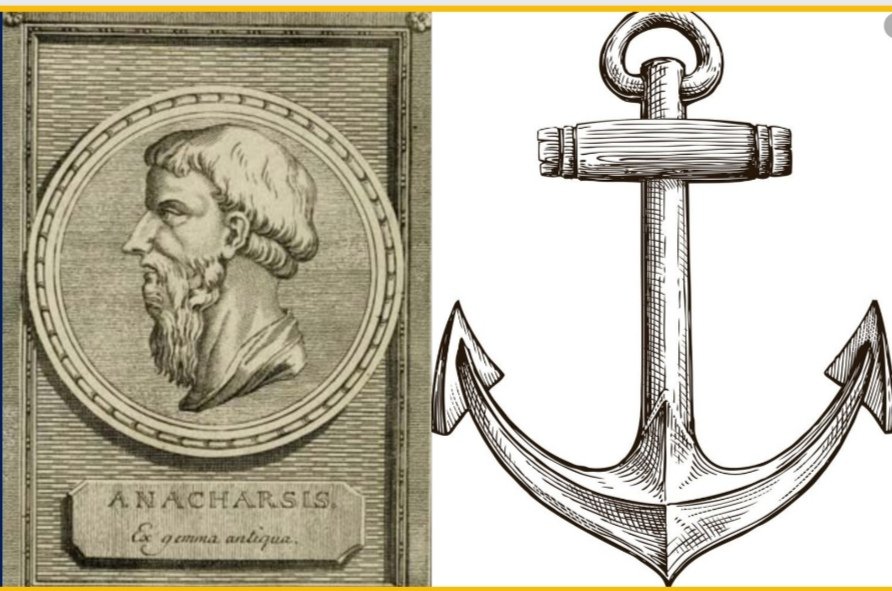He defined wisdom as knowing one's self: Who is Anakharsis?
The "two-winged anchor" was first invented by the Scythian philosopher Anacharsis and introduced to Ancient Greece.

(6th century BC) Scythian sage. He argued that wisdom has four principles such as mastering the passions, avoiding excess, knowing the existence of objects, and thinking originally. There is not enough information about his life. It is said that he lived around 588 BC and was the brother of the Scythian King Kadiysas. Again, according to rumors, during the period when Solon was making laws in Athens, he went to Greece and met with him, met the sages of that age, and the Lydian King Creusus, who heard his reputation, invited him to his palace and showed him respect. When he returned to his country, he was killed on the accusation that he thought it was contrary to the beliefs of the people and that he wanted to establish a new religion.
Anacharsis was a Scythian philosopher; he travelled from his homeland on the northern shores of the Black Sea, to Ancient Athens, in the early 6th century BC, and made a great impression as a forthright and outspoken barbarian, that is, a non-Greek speaker. He very well could have been a forerunner of the Cynics, in part because of his strong, but playful, parrhesia. None of his works have survived. Strabo makes him the (probably legendary) inventor of the anchor with two flukes, and others made him the inventor of the potter's wheel.
It is understood that Anakharsis, who is mentioned with different qualifications in different sources, especially Diogenes Laertius, was a famous and interesting sage of his age, but his works are not known. As it is understood from the thoughts conveyed by Diogenes Laertius, Anakharsis focused mostly on moral problems and education issues. The focus of his views is on problems such as mastery of passions, self-knowledge, and recognizing the beings in the environment.
According to Anakharsis, one should be free in his thoughts and avoid temporary tendencies, initiatives that hinder maturation, and excessive behavior.
While speaking, he should be able to say the words by weighing, measuring, and mastering the language. One should not miss the measure in nutrition and should not go to extremes in sexual relations. Wisdom is knowing one's self, knowing one's environment.
The following words of Anakharsis, which are alleged to have said about wine, are very common: Wine has three separate clusters. The first gives a personal taste, joy, and happiness, the second intoxicates him. Third, it embarrasses the person for what he or he has done.
After going to Greece and visiting the Agora, he said: “I came to Greece. I learned the customs, habits, and way of life of the Greeks, the happiness of returning to the Scythian country is enough for me.”
According to Anakharsis, observations have a great effect on the education of a person. The best way to be content with little and avoid excess is to observe the odious state of drunks.
